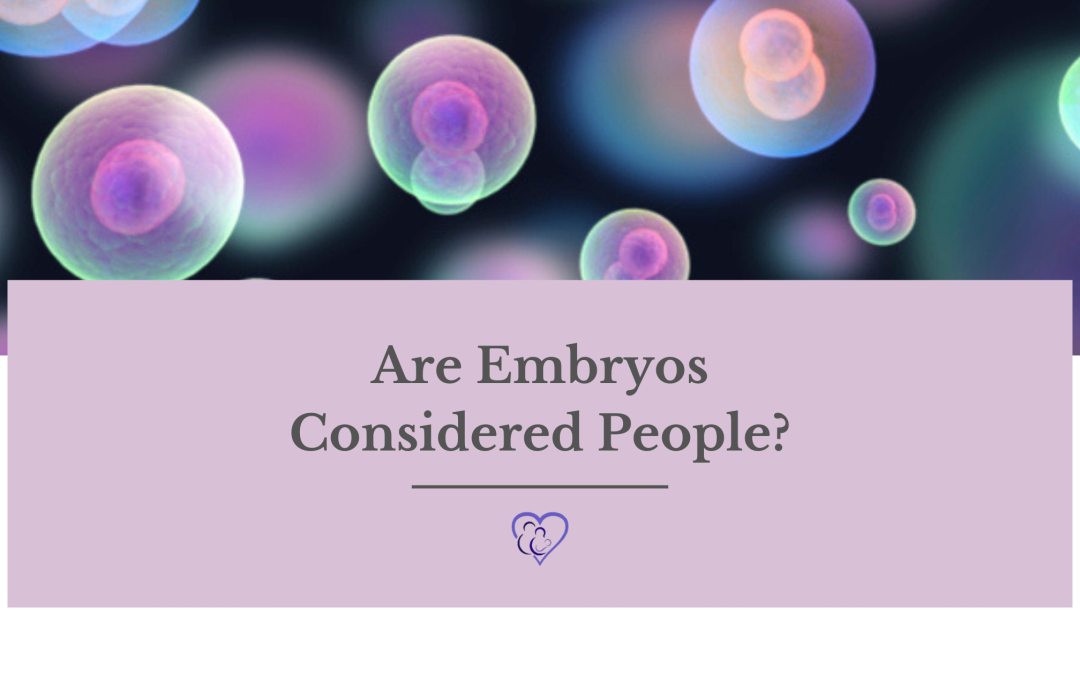The question of whether embryos should be considered people is complex and deeply debated. It sits at the intersection of biology, ethics, philosophy, and law. Different perspectives approach the question in distinct ways, some emphasizing scientific and legal definitions, others focusing on moral or philosophical beliefs about when human life begins.
You might recall the beloved children’s story Horton Hears a Who, in which Horton the elephant discovers an entire tiny community living on a speck of dust. Horton famously declares, “A person’s a person, no matter how small”
Although Dr. Seuss was writing children’s fiction, the sentiment reflects an important ethical idea: that size, age, or stage of development does not necessarily determine the value of a human life. This idea is often central in conversations about the moral status of embryos.
In this blog, we will explore three key areas that shape how people answer this question: scientific, legal, and moral considerations.
Scientific Considerations
From a biological perspective, a human embryo is a fertilized egg. Each embryo carries a unique genetic identity distinct from both parents.
In many families pursuing in-vitro fertilization (IVF), more embryos are created than are ultimately transferred. These embryos may be preserved through a process called cryopreservation, in which they are stored at very low temperatures. In this state, the embryos’ development is paused until they are thawed and transferred.
For families who later decide not to pursue further pregnancies, these embryos often remain frozen. Programs such as Snowflakes Embryo Adoption exist to connect these embryos with families hoping to provide them the opportunity to continue developing.
Legal Considerations
Legal definitions of embryos vary widely across the United States and globally. There is currently no overarching U.S. federal law governing the status of frozen embryos; states set their own regulations.
Some states treat embryos as a special form of property, largely focusing on the rights of the parents. Other states grant embryos limited or full legal recognition as persons, which can influence laws related to embryo storage, research, and adoption.
As legal frameworks continue to evolve, the way embryos are classified—whether as property, potential persons, or persons—shapes how families and adoption programs operate.
Moral and Ethical Considerations
Beyond science and law, many people consider the moral and ethical dimensions of embryo protection. Some approach this from a religious perspective; others frame it as a human-rights or dignity issue.
The core ethical question often centers on whether embryos deserve protection because of their potential to become fully developed human beings. For organizations like Nightlight and many families who pursue embryo adoption, the belief in the inherent worth of embryos motivates their commitment to providing care and opportunities for these earliest forms of human life.
There is no single, universally accepted answer to the question of whether embryos are people. Scientific facts, legal definitions, and ethical frameworks all contribute to the conversation.
At Nightlight, we are guided by the conviction that embryos possess unique human value and deserve protection and care. This belief shapes our mission to help embryos in storage find families who will welcome them and give them the chance to continue developing. We affirm that embryos are the smallest members of the human family, worthy of dignity, compassion, and the opportunity to grow.
For more information on embryo donation and adoption, visit EmbryoAdoption.org.


Recent Comments